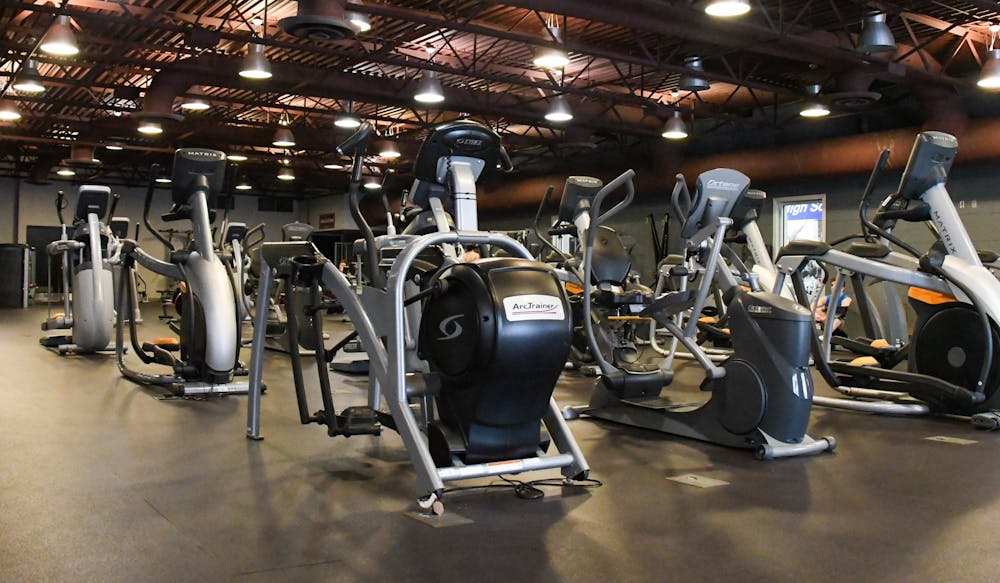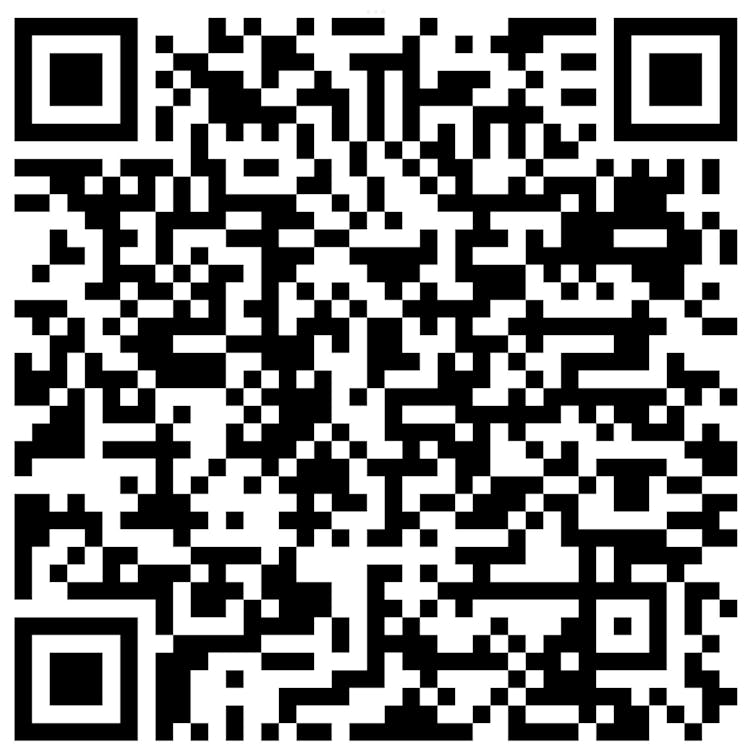‘You don’t know what you don’t know, but they know it’: Personal training on campus

Various workout equipment sits in the Fitness Center Thursday, Feb. 16 inside the Student Activity Center. The fitness center offers cardio and lifting equipment, weights, and more that students can access for free using their student ID.
University Recreation offers a variety of services pertaining to the well-being of students on campus, including personal training.
According to Central Michigan University’s website, University Recreation has provided the option for students to receive personal training face to face and virtually.
Some of the workouts for personal training include dynamic warm-up, cardio dance fitness, strength cardio HIIT, barre, yoga, cycling and many more classes that accommodate various skill levels, CMU’s website said.
Graduate Assistant for Fitness and Wellness Daniel Mwaniki said the Student Activity Center offers numerous amenities that can be taken advantage of with personal training regimens.
“We have a sauna, we have a pool, we have other forms of fitness and that is what our trainers are good for,” he said. “They can find what you like. … If you don’t like running, alright. Can you swim? … If you don’t like the treadmill, that’s fine, we can get you on a bike. If you like running … we have an indoor track.
“There are a lot of facilities in the SAC that our trainers … went to school for and can adapt to what the person needs.”
The flat rate for personal training is $30 per 1-hour session, which also includes a fitness assessment.
Assistant Director of Fitness and Wellness Valerie Faber said University Recreation is having a sale on its personal training package options. Currently, the three 1-hour session package is $81, which is 10% off original asking price, and the five 1-hour session package is $120, which is 20% off.
Mwaniki said in comparison to other personal trainers in Mount Pleasant, University Recreation tries to make it the most affordable service for students — and according to him it currently is.
Evolution Fitness located in Mount Pleasant offers personal training between $40 to $50 an hour. Similarly, Mount Pleasant Fitness Club provides 1 hour sessions for $50.
Fitness assessments on campus are free and can be done at any time for students, regardless of registering for personal training. The assessment itself is 30 minutes and it is meant for the personal trainer and students to gain “a comprehensive overview of your fitness level,” Faber wrote in an email.
The evaluation includes blood pressure, resting heart rate, height/weight, body composition, flexibility and strength. Faber said University Recreation also offers other options for fitness assessments that are “athletic, and balance focused.” After building a fitness profile, recommendations will be made to improve individual’s fitness level.
It is recommended that students return every 2-3 months for assessments to see progress within their training program, Faber said.
Students can book a fitness assessment online or at the following QR code:

Benefits of personal training
Why should students bother to care about personal training?
“Personal training is just wanting to see yourself develop,” Mwaniki said. “It (contributes) to your lifestyle too because then you start moving a certain way, you start prioritizing (things like sleep) … You start to focus on self-care, and this counts as a really good stressor for people who are away from home, (those) stressed out with school. … It’s really a wellness thing.”
Additionally, Faber said that students usually have no idea where to even begin when it comes to working out, especially without knowing what regimens their body specifically needs. Furthermore, Mwaniki said students come into personal training expecting to see a difference in one week or one day, but that’s not how it works.
“It’s not a one week thing, working out is delayed gratification,” he said.
Additionally, personal training is not just about working out. Mwaniki pointed out that a student's diet plays a big role in exercise and progress. Which in turn will have a “180” effect on students’ lives, driving them to be more “focused (and) striving for goals (they) make,” he said.
This is where personal trainers come in to then set Specific Measurable Attainable Realistic Tangible (SMART) goals for clients.
“The more specific you are with your goals, the more you will be able to succeed,” Mwaniki said.
University Recreation's programming is meant to be personalized to individuals, Faber said. Therefore, every trainer sits down to discuss these goals with clients, as well as how active their lifestyle has previously been. This is done so trainers can tailor to clients' needs.
“Every trainer wants their client to eventually know enough to do on their own,” she said.
“We see our personal trainers as the training wheels on your bike, and once you have the tools and resources to do it yourself, you are dislodged — you are able to ride a bike yourself,” Faber said. “That is essentially what they do. In a way that means they are your support system as you find your fitness journey and what works for you independently.”
Mwaniki said that is why he typically encourages students to be in the program for three months. Results are more evident, and by then, students have a grasp on regimens that work for their body type.
“You don’t know what you don't know, but they know it,” Faber said.
Misconceptions of personal training
What are some misconceptions students have when it comes to personal training?
“Here specifically, is that they (trainers) are students, or that they aren’t as well-versed or educated,” Faber said.
When students hear of their personal trainers being students as well, they may believe the trainer is less qualified or have no experience, Faber and Mwaniki agreed.
However, personal trainers must be certified, which costs $500-$1,000 out of pocket to renew every two to three years to continue being a professional personal trainer, Faber said. Therefore, many people are unaware that personal trainers are paying to invest in themselves to provide these kinds of services.
“Our students are martial artists, they’re junior ROTC and current ROTC members that, you know, they live fitness,” she said. “It’s in their lifestyle, it’s in their blood. It’s what they do. They’re passionate about it and they want to share that passion with others.”
Faber mentioned that once students get to know some of the personal trainers on campus, many of the trainers have inspirational fitness stories of their own to share. Therefore, they understand what it takes to achieve personal goals in order to guide students to make their fitness journeys just a little bit easier.
Mwaniki said that social media has evolved a bad narrative on personal trainers. There is a stigma that these student personal trainers do not know what they are talking about, or people get discouraged seeing someone already having attained their fitness goal.
“The kids on college campuses are actually pursuing their degree, they know their information,” he said. “Then they go out of their way to get a certification also, so these are people you can actually rely on to make sure they are training you properly. And on top of that, they know what they are talking about.”
However, Mwaniki understands that it can also be intimidating and vulnerable for students to work out with a personal trainer and discuss weight.
“Anything in life can be nerve wracking if you don’t know how to do it right,” he said.
It’s a mindset, Faber added, when people start saying, “I need to look a certain way before training.” When people compare themselves to others, it only adds to the fear of going to the gym, Miwaniki said.
Therefore, there are people who try to work out at home because that is their comfort zone, he said.
“It’s okay to do at-home work outs, but then it’s like you’re just stuck in that mindset because you don’t want to venture out and talk to a personal trainer,” Mwaniki said. “You can have a lot of information from the internet, but you don’t know how to put it together.”
Upcoming events and programs
Miwaniki explained that he and a group of other University Recreation members have been putting together a program for all students including beginners, novice goers and normal gym goers. This program is meant to educate people on the do’s and don’ts of the gym; rest and recovery; proper goal settings; nutrition; hypertrophy; programming; and how to make a goal happen.
Miwaniki, as well as others, will be going to dorms to host a Q&A on the previously listed subjects in order to have an open conversation with students, he said. The goal of it is to help students start their fitness journey.
Faber said the program will be jumpstarting sometime after spring break. To remain updated about this program, look to University Recreation’s social media or email URecfitness@cmich.edu.
Upcoming events from University Recreation include:
- Bollywood Dance Demo for students' feedback to have more culturally diverse programming at 6 p.m. on Feb. 21 in MAC1 gym.
Activities for National Intramural-Recreational Sports Association (NIRSA) National Rec Day Feb. 22:
- Aqua Pilates from 4 to 4:45 p.m. in SAC pool
- Release and Restore from 6 to 6:30 p.m. in SAC Wellness Studio
- Meditation from 6:30 to 7 p.m. in SAC Wellness Studio
- MMA Fitness from 6:30 to 7 p.m. in SAC MP Fit Room
Feb. 22 events from 6 to 8 p.m. and require no registration or sign up:
- Esports Open Hours from 2 to 5 p.m. in SAC 202
- Open Play Mario Kart from 6 to 8 p.m. in SAC 202
- Club Social (Club Sports information fair)
- Recreational Sport Activities in the Racquetball court including Wally Ball, Cross New and Football Throwing Challenge.





